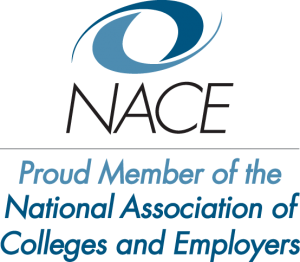Should Strengths Guide Students’ Vocational Discernment? There is something intuitively appealing about strengths. We tend to assume that identifying and leaning on their unique strengths is a key path for helping students develop and succeed. That assumption seems like a safe one, but it doesn’t answer the question of how, precisely, student strengths influence their educational and career choices. What role do strengths play in students’ vocational discernment process? The answer, maybe a counterintuitive one, is that strengths don’t play any role in choosing a career. Instead, strengths influence how students can pursue whatever career they choose. Put another way, strengths are relevant for helping students live their callings, but not discern them. Allow me to explain.
Strengths as Talents
The term “strengths” is defined differently by different groups of scholars,[1] but educators in the U.S. are probably most familiar with Donald Clifton’s conceptualization of strengths as extensions of talent. From this perspective, talents are natural predispositions to excel in particular domains, whereas strengths combine talents with associated experience, skill and knowledge. Strengths, in other words, are maximized talents. Clifton’s approach, which underpins the CliftonStrengths assessment instrument (formerly known as the Clifton StrengthsFinder), has proven a huge commercial success, tied as it is to the Gallup Organization’s massive marketing engine. CliftonStrengths uses 177 self-report items to generate scores on 34 themes of talent (e.g., Analytical, Focus, Harmony). The basic version of the profile reports only the top five scores, consistent with its goal of identifying and developing one’s top strengths rather than worrying much about weaknesses. The CliftonStrengths instrument is used in more than 600 schools, and is designed to help students identify areas of personal talent that offer the greatest potential for building strengths; in turn, strengths are relevant for crafting careers in which they can thrive, developing strong relationships with friends and mentors, living healthier lives, and planning the future, among other things.
As a proprietary assessment tool, the CliftonStrengths instrument has relatively little published research examining its psychometric properties. Gallup’s technical report for the instrument[2] reveals that reliability coefficients for many of its scales fall below the recommended threshold (α = .70) for use in psychological assessment, and validity data is limited to correlations of strengths scores with scores on established benchmark measures of personality traits such as the Big Five.[3] Of course, the pattern of these correlations does generally conform to expectations. And although it would be ideal to see evidence that CliftonStrengths scores correlate with scores derived from other ways of measuring strengths beyond self-reports (e.g., informant reports or objective ratings), absence of evidence is not evidence of absence. Furthermore, research on Clifton’s model has consistently found that strengths-based interventions in the workplace increase subjective well-being, hope, self-efficacy, and employee engagement (see Hodges & Clifton, 2004, and Clifton & Harter, 2003).[4] Strengths do appear to drive positive outcomes. However, they should not be used to help students when it comes to vocational discernment.
Strengths Don’t Help with Vocational Discernment
This is not just my opinion. There is simply no evidence that strengths are predictive of satisfied career choice, or that different occupations require distinct patterns of strengths. These are not controversial assertions, either. The developers of the CliftonStrengths instrument readily acknowledge these limitations in their technical report, and even devote one of the FAQs on their website to this question:
Can the CliftonStrengths assessment reveal whether I am in the right career?
The CliftonStrengths assessment was designed for use in a purely developmental context. It is not designed to direct you into specific professions. Although certain themes do appear to be quite consistently dominant within certain professions, it would be wrong to say that a given profession requires dominant talents in certain themes. During our research, we discovered many individuals who were excelling in the same profession but who had very different top five themes. The best way to use the CliftonStrengths assessment to guide your career is to determine ways to apply the talents in your top five themes to whatever role or profession you choose. (Emphasis added.)
If you are using CliftonStrengths to inform students’ choices of majors and careers, you are using it incorrectly. The instrument was not designed to inform career choice, and its scores are not predictive of career choice outcomes. If you are using CliftonStrengths for that purpose, stop. So then: Where do strengths fit into the career development process, and what type of assessment information should students rely on to inform their career choices?
Research on What Works in Vocational Discernment
A great deal of personal reflection, active exploration, support-seeking, and wisdom goes into successful vocational discernment.[5] Vocational psychology offers the most direct answers to the question of what actually helps students make wise career choices, wisely. Researchers within this field have repeatedly tested the efficacy of diverse career counseling interventions using rigorous, carefully controlled experiments. Results suggest that career choice outcomes are best promoted by some combination of written exercises, individualized interpretation and feedback, access to up-to-date occupational information, attention to building support from important others, and access to role models who can demonstrate effective career decision-making behaviors.[6] One of these “critical ingredients” of effective interventions, individualized interpretation, and feedback, speaks to the value of using assessments to inform the discernment process. But which type of assessment is best to incorporate?
Decades of research suggests that interests, not strengths, are the driver in making satisfying career choices. Interests are stable dispositions that draw people toward particular sets of activities. More simply, interests are “motivations that determine life decisions.”[7] Interests can be reliably and validly measured using any of several psychometrically sound interest inventories. In contrast to CliftonStrengths scores, scores on interest inventories do predict satisfied career choice. For example, numerous studies reveal that approximately 65% of people are happily employed in an occupation predicted by their earlier scores on the Strong Interest Inventory; these results hold for intervals ranging from 3.5 to 18 years, and they greatly exceed the rate that would be expected due to chance, which is 28%.[8]
Start with Interests, then Move to Strengths
What, then, of strengths? If we consider strengths as expressions of one’s abilities, then E.K. Strong, Jr., the early pioneer in vocational interest measurement, answered this question for us nearly 80 years ago. He did so using a boat analogy: “The relationship among abilities, interests, and achievements may be likened to a motorboat with a motor and a rudder. The motor (abilities) determines how fast the boat can go, the rudder (interests) determines which way the boat goes.”[9]
A landmark comprehensive review of hundreds of studies published after Strong wrote those words found that according to the evidence, “abilities, interests, and personality development in tandem, such that the ability level and personality dispositions determine the probability of success in a particular task domain, and interests determine the motivation to attempt the task.”[10] This summary aligns completely with the boat analogy: Interests function like a rudder, determining the boat’s (or a person’s) direction. Abilities and personality—and by extension, strengths—function as the motor, and influence how fast and how far a boat (or person) travels in that direction. Students’ strengths will influence how successful they might be within their career, but none of that matters if they don’t start with a strong interest in that field.
When incorporating assessments in the vocational discernment process, start with interests. Once students make commitments to a major and a potential career path, that’s when strengths assessment is most valuable, if the goal is establishing a successful, purpose-driven, meaningful career.
If you desire the more comprehensive approach we’ve adopted with PathwayU, add work values to interests assessment during the career choice process. Then add abilities, personality, and organizational culture preferences to strengths assessment as students strive to implement their choice, doubling down on their sense of purpose as they prepare for entry into the world of work. In making these recommendations, I have a bias: I want to do what works. May this be your bias too.
[1] e.g., The late Chris Peterson and Martin Seligman conceptualized strengths as moral traits that comprise broader virtues. Peterson, C., & Seligman, M. E. P. (2004). Character strengths and virtues: A handbook and classification. Washington, DC: American Psychological Association.
[2] Apslund, J., Agrawal, S., Hodges, T., Harter, J., & Lopez, S. J. (2014). The Clifton StrengthsFunder 2.0 Technical report: Development and validation. Omaha, NE: Gallup.
[3] McCrae, R. R., & Costa, P. T. (1987). Validation of the five-factor model of personality across instruments and observers. Journal of Personality and Social Psychology, 52, 81-90.
[4] Hodges, T. D., & Clifton, D. O. (2004). Strengths-based development in practice. In P. A. Linley & S. Joseph (Eds.), Positive Psychology in Practice (256-268). Hoboken, NJ: Wiley; Clifton, D. O., & Harter, J. K. (2003). Investing in Strengths. In A. K. S. Cameron, B. J. E. Dutton, & C. R. E. Quinn (Eds.), Positive Organizational Scholarship: Foundations of a New Discipline (pp. 111-121). San Francisco, CA: Berrett-Koehler.
[5] Ryan Duffy and I explored this in great detail in our book Make Your Job a Calling. Dik, B. J., & Duffy, R. D. (2012). Make your job a calling: How the psychology of vocation can change your life at work. West Conshohocken, PA: Templeton Press.
[6] Brown, S. D., & Ryan Krane, N. E. (2000). Four (or five) sessions and a cloud of dust: Old assumptions and new observations about career counseling. In S. Brown & R. Lent (Eds.), Handbook of Counseling Psychology (3rd Ed.; pp. 195-226). New York: Wiley.
[7] Walsh, W. B., (1999). What we know and need to know: A few comments. In M. Savickas & A. Spokane (Eds.), Vocational Interests: Meaning, Measurement and Counseling Use (pp. 371-381). Palo Alto, CA: Davies-Black.
[8] Dik, B. J., & Rottinghaus, P. J. (2013). Assessments of interests. In K. F. Geisinger (Ed.), APA Handbook of Testing and Assessment in Psychology (pp. 325-348). Washington, D.C.: APA.
[9] Strong, E.K. Jr. (1943). Vocational interests of men and women. Palo Alto, CA: Stanford University Press.
[10] Ackerman, P. L., & Heggestad, E. D. (1997). Intelligence, personality, and interests: Evidence for overlapping traits. Psychological Bulletin, 121, 219.







